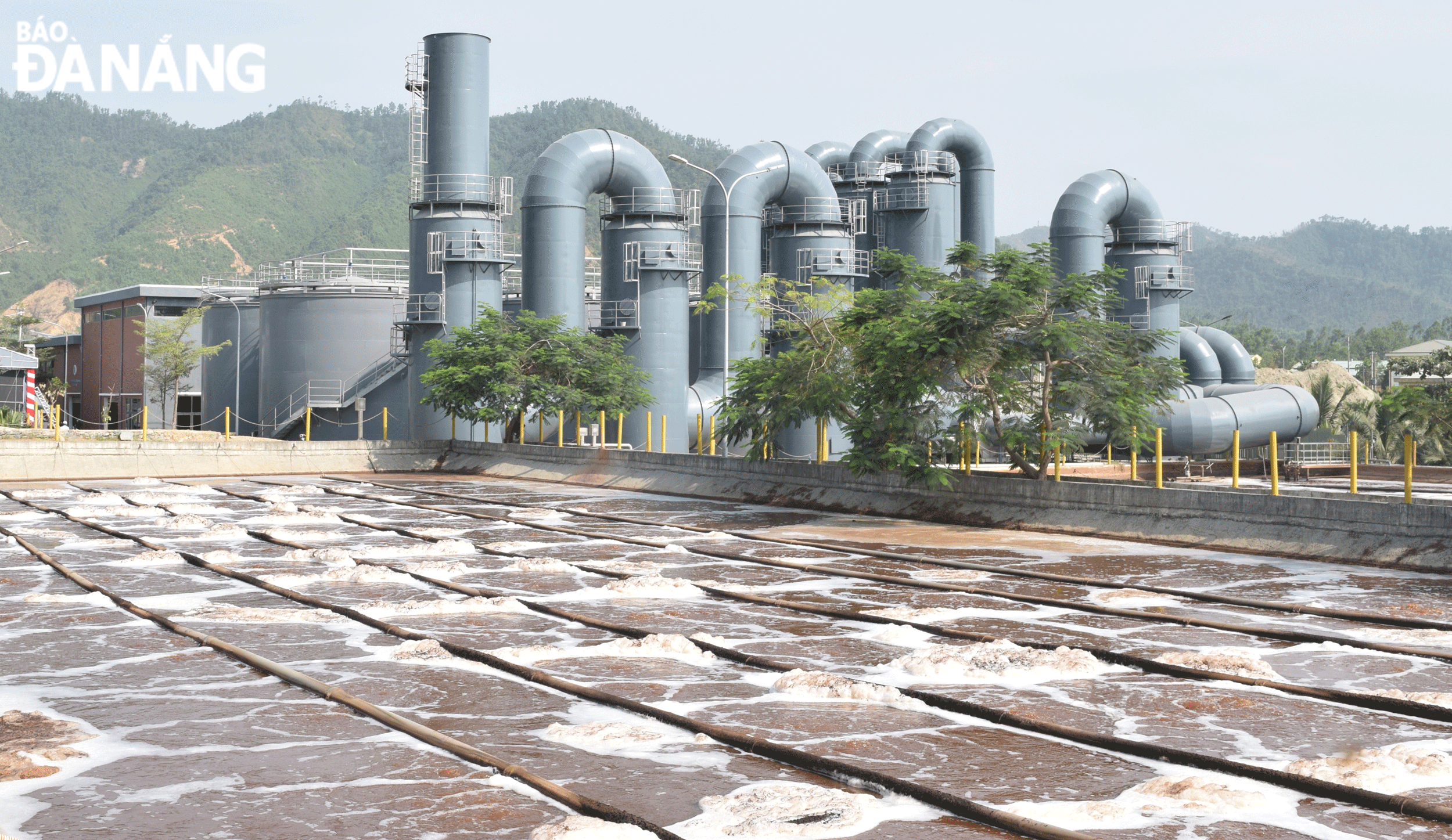Positive progress in solid waste management
Solid waste management, particularly household waste, in Da Nang has seen significant improvements, contributing to effectively addressing issues related to environmental pollution and public health caused by waste.
 |
| The investment and operation of two leachate treatment systems have helped improve the environment in the Khanh Son landfill area and its surroundings. Photo: HOANG HIEP |
According to the Department of Natural Resources and Environment, in 2018, the City Council issued Resolution No. 204/NQ-HĐND on the management of household waste in the city until 2025. The resolution aims to minimize environmental pollution caused by solid waste, enhance the quality of waste collection, transportation, and treatment services, and attract private sector participation in these activities. Specifically, for reducing waste at the source, the city has implemented a waste sorting program since 2019. Currently, 96.63% of neighborhoods, 93.45% of households, and 91.83% of businesses, service establishments, and organizations have been informed and engaged in sorting recyclable and reusable waste such as paper, plastics, and metals.
To improve the efficiency of waste collection, sorting, transportation, and public sanitation, the city has invested in the construction and operation of two modern waste transfer stations in the Son Tra District and on Le Thanh Nghi Street. Additionally, Da Nang is preparing to invest in more waste transfer stations and is considering improvements to other waste collection points in both urban and rural areas, contributing to a clean, beautiful, and civilized environment.
Moreover, through the competitive bidding process for waste collection, transportation, and public sanitation services, fair competition has been promoted. Coordination in environmental sanitation monitoring and supervision has been strengthened from the district level to wards and communes. The city's mechanism for receiving and addressing public feedback on environmental sanitation has been timely and efficient. Notably, waste collection, transportation, and public sanitation equipment have been mechanized, contributing to urban aesthetics and reducing environmental pollution. As a result, the environmental sanitation situation in the city has improved positively.
The city is implementing comprehensive measures to ensure safe waste management, maintaining waste security in the city until 2030, with a vision to 2050. For the Khanh Son Solid Waste Treatment Complex, in 2019, Da Nang approved an investment project to upgrade and renovate several components of the Khanh Son landfill, with the goal of increasing the waste reception capacity of the five existing landfill cells (cells 1 to 5) and investing in a new cell (cell 6). In 2021, the city put into operation the second phase of the leachate treatment system, increasing the total leachate treatment capacity to 1,750 cubic metres per day, ensuring that all collected leachate is treated to meet standards before being discharged into the environment.
Thanks to continuous investment, the Khanh Son Solid Waste Treatment Complex is now regarded as having good basic technical infrastructure, with leachate collection and treatment meeting standards, ensuring hygienic landfill operations. The city is also calling for investment to innovate waste treatment technology, gradually replacing hygienic landfill methods with waste-to-energy incineration technology at the Khanh Son Waste-to-Energy Plant, which has a waste treatment capacity of 650 tons per day and is expected to be operational by the third quarter of 2026.
Mr Vo Nguyen Chuong, Deputy Director of the Department of Natural Resources and Environment, stated that the city will invest in the seventh landfill cell and consolidate the existing cells to increase hygienic landfill capacity in the coming period. The positive news is that the volume of household waste transported to landfills has decreased compared to projections. Approximately 25% of total household waste is sorted at the source, with 93% of that volume being recycled or reused, significantly reducing the amount of waste requiring landfill at the Khanh Son Solid Waste Treatment Complex.
Da Nang is continuing to improve the technical infrastructure of the Khanh Son Solid Waste Treatment Complex until 2030 and is also studying the planning of a solid waste treatment facility in the western region with a vision to 2050. At the same time, Da Nang is calling for investment in projects such as a multipurpose waste treatment plant, a food waste, organic waste, and sludge treatment plant, a hazardous waste incinerator (new investment), and a comprehensive ash landfill to complete the infrastructure of the Khanh Son Solid Waste Treatment Complex.
Reporting by HOANG HIEP - Translating by TRUC VY